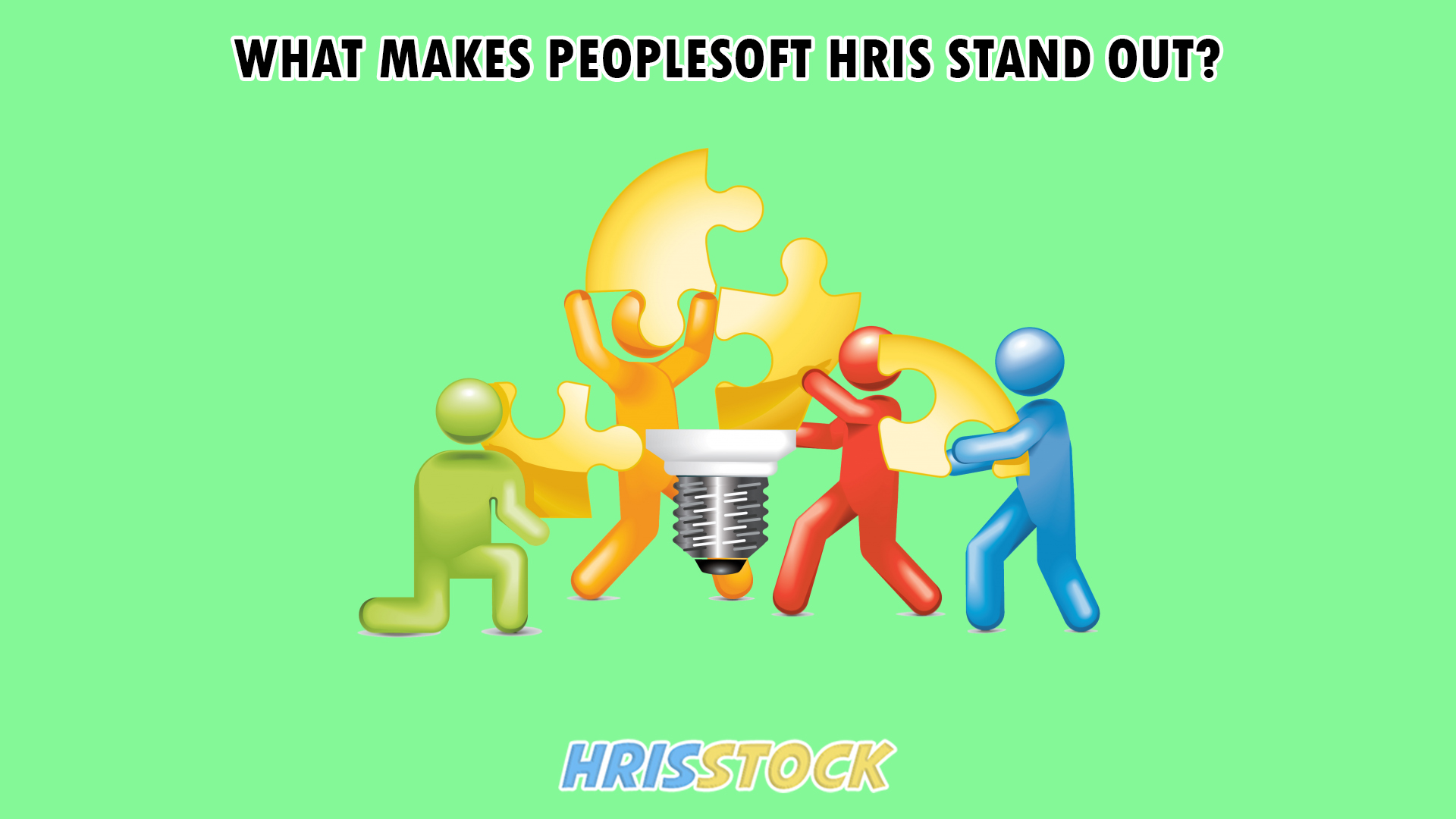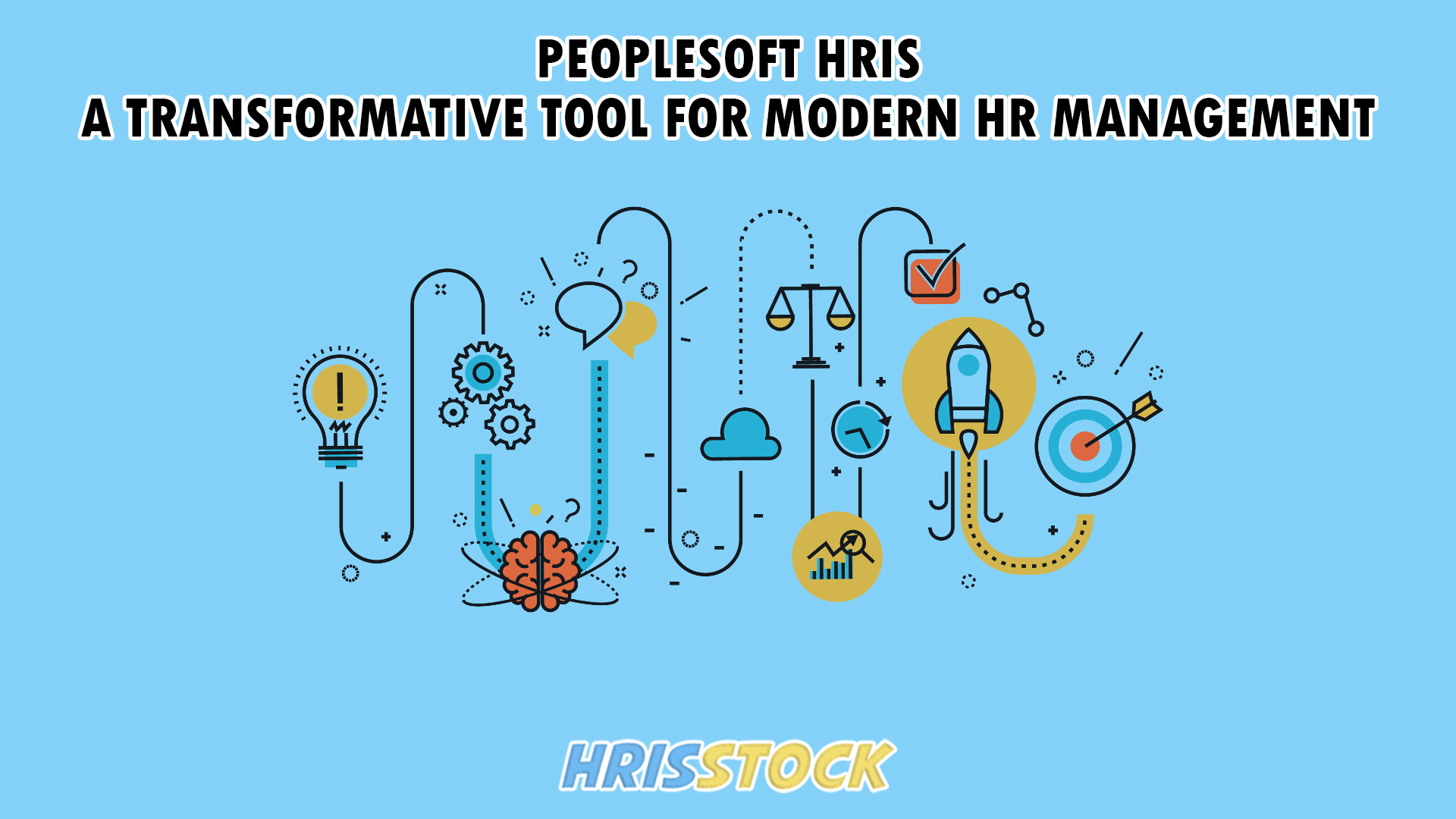In today’s whirlwind of technological advancement and organizational growth, managing human resources effectively is not just a necessity it’s a strategic advantage.
As businesses expand and their operations become increasingly complex, the challenge of managing vast amounts of employee data, payroll, benefits, and compliance becomes more daunting.
This is where Human Resource Information Systems (HRIS) step in as crucial digital allies, offering a centralized platform to streamline these multifaceted processes.
Among the array of HRIS solutions available, PeopleSoft HRIS stands out as a pioneer that has not only withstood the test of time but has also evolved in tandem with the changing demands of the business world.
Originally developed in the late 1980s, PeopleSoft HRIS has transformed from a cutting-edge client-server application into a comprehensive, integrated system that supports diverse HR functions on a global scale.
Its enduring relevance and adaptability have made it a preferred choice for large enterprises seeking to enhance their HR management capabilities. Join us as we explore the origins, evolution, and ongoing impact of PeopleSoft HRIS, and discover why it remains a cornerstone of modern HR strategy.
The Genesis of PeopleSoft HRIS
PeopleSoft’s story begins in 1987 when Dave Duffield and Ken Morris, two visionary entrepreneurs, founded the company with a singular focus on transforming the landscape of enterprise resource planning (ERP) software.
At its inception, PeopleSoft was designed as a client-server application aimed primarily at streamlining human resources functions.
This innovative approach to HR management was groundbreaking at the time, offering a new level of efficiency and accuracy for tracking employee information, managing benefits, and processing payroll.
Initially, PeopleSoft’s software was tailored to meet the needs of human resource departments, providing them with a comprehensive suite of tools to handle various HR tasks. The company’s early success in this domain laid the foundation for its future expansions.
Over time, PeopleSoft broadened its scope, extending its ERP solutions to include financial management, supply chain operations, and customer relationship management.
This diversification allowed PeopleSoft to offer a holistic approach to enterprise management, integrating multiple business functions into a cohesive system.
One of the standout features of PeopleSoft’s HRIS was its adaptability. As organizations grew and their HR needs became more complex, PeopleSoft’s HRIS evolved to meet these demands.
Its ability to handle intricate HR processes and its flexibility in customization set it apart from other solutions available at the time. This reputation for robustness and versatility helped PeopleSoft HRIS become a cornerstone of many large organizations’ HR strategies.
The pivotal moment in PeopleSoft’s history came in 2005 when Oracle Corporation, a global leader in database and enterprise software, acquired PeopleSoft.
This acquisition was part of Oracle’s strategy to expand its ERP offerings and integrate them into its extensive portfolio of enterprise solutions. Despite the merger, PeopleSoft HRIS retained its distinct identity and continued to operate under its original brand.
What Makes PeopleSoft HRIS Stand Out?

PeopleSoft HRIS is celebrated for its comprehensive and versatile approach to human resource management, offering a suite of tools that cater to every aspect of workforce management.
This robust platform has earned its reputation by consistently delivering solutions that address the complex and diverse needs of global enterprises.
1. Comprehensive Functionality
At the heart of PeopleSoft HRIS is its extensive functionality, which covers the full spectrum of HR processes.
Whether it’s tracking employee information, managing benefits, processing payroll, or ensuring compliance with local labor laws, PeopleSoft is designed to be an all-encompassing solution.
The platform’s capabilities extend to various critical HR functions, such as recruitment and talent acquisition, performance management, learning and development, and succession planning.
This makes it a vital tool for HR departments looking to streamline operations and improve efficiency. The ability to manage these diverse functions within a single system reduces the need for multiple platforms, thus minimizing errors and saving time.
2. Customization and Flexibility
One of the standout features of PeopleSoft HRIS is its unparalleled flexibility. The system is designed with customization in mind, allowing organizations to tailor the software to meet their specific needs.
This is especially valuable for companies with unique HR policies, processes, or regulatory requirements that cannot be adequately addressed by out-of-the-box solutions.
PeopleSoft HRIS enables organizations to customize workflows, reporting structures, and user interfaces, ensuring that the software aligns with their existing business practices.
This level of customization extends to creating role-specific dashboards, personalized user experiences, and automated processes that reflect an organization’s unique operational needs.
The result is a system that can adapt to a wide range of business environments, regardless of size or industry.
3. Global Reach and Compliance
For multinational corporations, managing HR across different countries presents significant challenges, including navigating various legal requirements, tax laws, and cultural differences.
PeopleSoft HRIS is specifically designed to address these challenges by offering robust features that support global HR management.
The platform includes modules that help manage local tax laws, employment regulations, and language preferences, making it easier for companies to maintain compliance across borders.
Additionally, PeopleSoft’s global payroll solutions can handle the intricacies of payroll processing in multiple countries, ensuring that employees are paid accurately and on time, regardless of location.
This global reach is crucial for organizations that operate in multiple regions, as it simplifies the complexities associated with international HR management and helps mitigate the risks of non-compliance.
4. Integration Capabilities
In today’s interconnected business environment, the ability to integrate different software systems is essential for smooth operations.
PeopleSoft HRIS excels in this area, offering seamless integration with a wide range of other enterprise systems. This includes integration with Oracle’s extensive suite of products as well as third-party applications.
The system’s open architecture allows for easy data exchange between PeopleSoft and other business applications, ensuring that information flows smoothly across departments.
This interconnectedness enables organizations to leverage data from various sources to make more informed decisions, optimize processes, and enhance overall efficiency.
For example, integrating PeopleSoft HRIS with financial management systems can provide real-time insights into labor costs, while integration with supply chain management software can help align workforce planning with production needs.
5. Security and Data Management
In an era where data security is of paramount importance, PeopleSoft HRIS is equipped with robust features to protect sensitive HR information.
The system employs role-based access control, which ensures that only authorized personnel can access specific data. This is particularly important for safeguarding personal employee information, such as social security numbers, bank details, and health records.
PeopleSoft HRIS also incorporates advanced encryption techniques to protect data both at rest and in transit, minimizing the risk of unauthorized access or data breaches.
Furthermore, the system includes comprehensive audit trails that track all changes made to the data, providing a clear record of who accessed what information and when. This not only enhances security but also supports compliance with data protection regulations, such as GDPR and CCPA.
The Evolution of PeopleSoft HRIS in the Cloud Era
As cloud computing emerged as a dominant force in the technology landscape, many legacy systems struggled to keep pace with the demand for increased flexibility, scalability, and cost-efficiency.
Traditional on-premises solutions, once the standard for enterprise software, began to show their limitations in a world that was rapidly moving toward cloud-based models.
However, PeopleSoft HRIS has successfully navigated these changes, proving its resilience and adaptability in the cloud era.
Recognizing the need to evolve, Oracle introduced several initiatives to bring PeopleSoft HRIS into the cloud.
One of the most significant developments was the introduction of PeopleSoft Cloud Manager, a tool specifically designed to facilitate the transition of PeopleSoft environments to Oracle Cloud Infrastructure (OCI).
This innovation allows organizations to move their PeopleSoft HRIS from on-premises data centers to the cloud seamlessly, preserving the rich functionality that users have come to rely on while taking advantage of the scalability, flexibility, and cost benefits offered by cloud computing.
PeopleSoft Cloud Manager offers several key features that make cloud adoption more accessible and efficient. It provides automated provisioning, which simplifies the process of setting up and managing PeopleSoft environments in the cloud.
Additionally, it enables organizations to scale their infrastructure on-demand, ensuring that they have the necessary resources to handle peak loads without the need for costly and time-consuming hardware upgrades.
The tool also includes features for managing updates and patches, making it easier for organizations to keep their PeopleSoft environments current without significant downtime or disruption.
User Experience and Community Support
- Intuitive User Interface:
PeopleSoft HRIS is designed with the end-user in mind, offering an intuitive interface that simplifies navigation for HR professionals. The system’s layout, including role-based dashboards and easy-to-use menus, reduces the learning curve and makes it accessible even for those new to HRIS. - Customizable Workflows:
The system allows users to tailor workflows to meet their specific needs. This flexibility enables HR teams to streamline processes such as payroll management, benefits administration, and employee data handling, improving overall efficiency. - Efficient Task Management:
PeopleSoft HRIS is built to help HR teams perform their tasks efficiently. Whether processing payroll, managing benefits, or handling employee data, the system’s thoughtful design supports quick and accurate execution of essential HR functions. - Vibrant User Community:
A key factor in PeopleSoft HRIS’s continued success is its active and engaged user community. This community provides a platform for users to share knowledge, troubleshoot issues, and discuss best practices, contributing to a richer user experience. - Access to Forums and User Groups:
PeopleSoft HRIS users have access to numerous forums, user groups, and online resources. These platforms allow users to find solutions to common problems, exchange ideas, and stay informed about the latest system updates and features, fostering collaboration and continuous learning. - Comprehensive Documentation and Training:
Oracle supports PeopleSoft HRIS users with extensive documentation and training materials. These resources help users maximize the system’s capabilities, ensuring they can fully leverage their PeopleSoft HRIS investment. - Loyal User Base:
The sense of community around PeopleSoft HRIS has fostered a loyal user base, many of whom have remained with the platform for decades. This loyalty reflects the system’s reliability, adaptability, and the strong support network that has developed around it. - Ongoing User Support:
The active involvement of the user community, combined with Oracle’s support, ensures that PeopleSoft HRIS users receive ongoing assistance. This support network helps users overcome challenges and enhances their overall experience with the platform. - Contribution to System Longevity:
The combination of a user-friendly interface, customizable workflows, and a strong community has contributed to PeopleSoft HRIS’s longevity in the market. The system’s ability to adapt to user needs and provide robust support has kept it relevant and valuable to HR professionals over the years.
Challenges and Considerations
While PeopleSoft HRIS offers a wealth of features and benefits, it is not without its challenges. One of the primary considerations for organizations is the complexity of the system.
PeopleSoft HRIS is a powerful and comprehensive platform, but this complexity can be overwhelming, particularly for smaller organizations or those with limited IT resources.
Implementing and configuring PeopleSoft HRIS requires significant expertise, and maintaining the system over time can demand considerable effort and investment.
The cost of PeopleSoft HRIS is another factor that organizations must consider. While the system offers robust functionality, the associated costs both in terms of initial implementation and ongoing maintenance can be significant.
This makes PeopleSoft HRIS a more suitable option for large enterprises with substantial HR needs and the resources to support such a comprehensive system.
Smaller organizations may find that the cost and complexity outweigh the benefits, leading them to consider alternative solutions that are more tailored to their scale.
